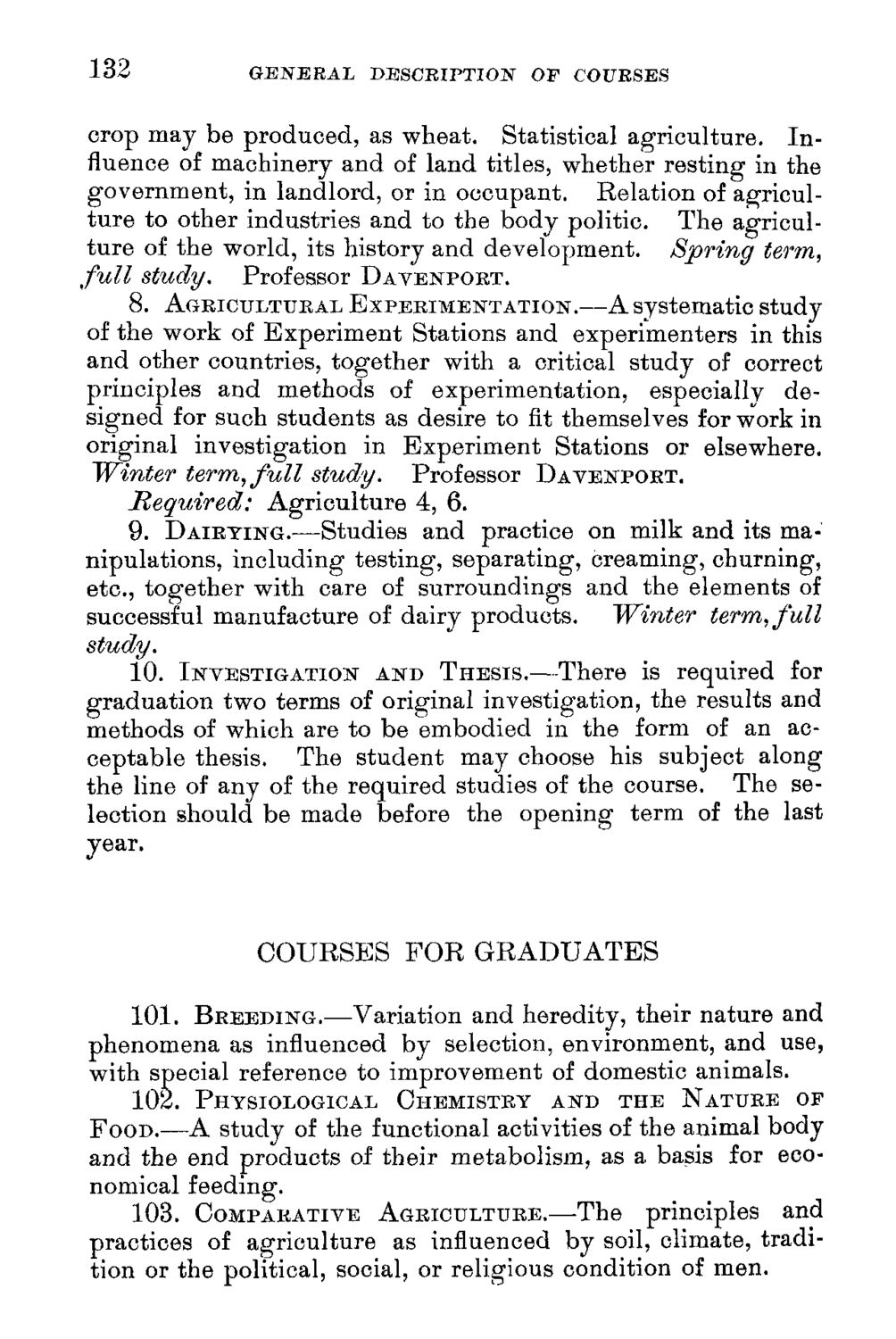| |
| |
Caption: Course Catalog - 1895-1896
This is a reduced-resolution page image for fast online browsing.

EXTRACTED TEXT FROM PAGE:
132 GENERAL DESCRIPTION OP COURSES crop may be produced, as wheat. Statistical agriculture. Influence of machinery and of land titles, whether resting in the government, in landlord, or in occupant. Relation of agriculture to other industries and to the body politic. The agriculture of the world, its history and development. Spring term, full study. Professor DAVENPORT. 8. AGRICULTURAL EXPERIMENTATION.—A systematic study of the work of Experiment Stations and experimenters in this and other countries, together with a critical study of correct principles and methods of experimentation, especially designed for such students as desire to fit themselves for work in original investigation in Experiment Stations or elsewhere. Winter term, full study. Professor DAVENPORT. Required: Agriculture 4, 6. 9. DAIRYING.—Studies and practice on milk and its manipulations, including testing, separating, creaming, churning, etc., together with care of surroundings and the elements of successful manufacture of dairy products. Winter term, full study. 10. INVESTIGATION AND THESIS.—There is required for graduation two terms of original investigation, the results and methods of which are to be embodied in the form of an acceptable thesis. The student may choose his subject along the line of any of the required studies of the course. The selection should be made before the opening term of the last year. COURSES FOR GRADUATES 101. BREEDING.—Variation and heredity, their nature and phenomena as influenced by selection, environment, and use, with special reference to improvement of domestic animals. 102. PHYSIOLOGICAL CHEMISTRY AND THE NATURE OF FOOD.—A study of the functional activities of the animal body and the end products of their metabolism, as a basis for economical feeding. 103. COMPARATIVE AGRICULTURE.—The principles and practices of agriculture as influenced by soil, climate, tradition or the political, social, or religious condition of men.
| |